FAMILY & SUPPORTERS ENROLLMENT GUIDE
Nearly everything you’ll need to help you support your student
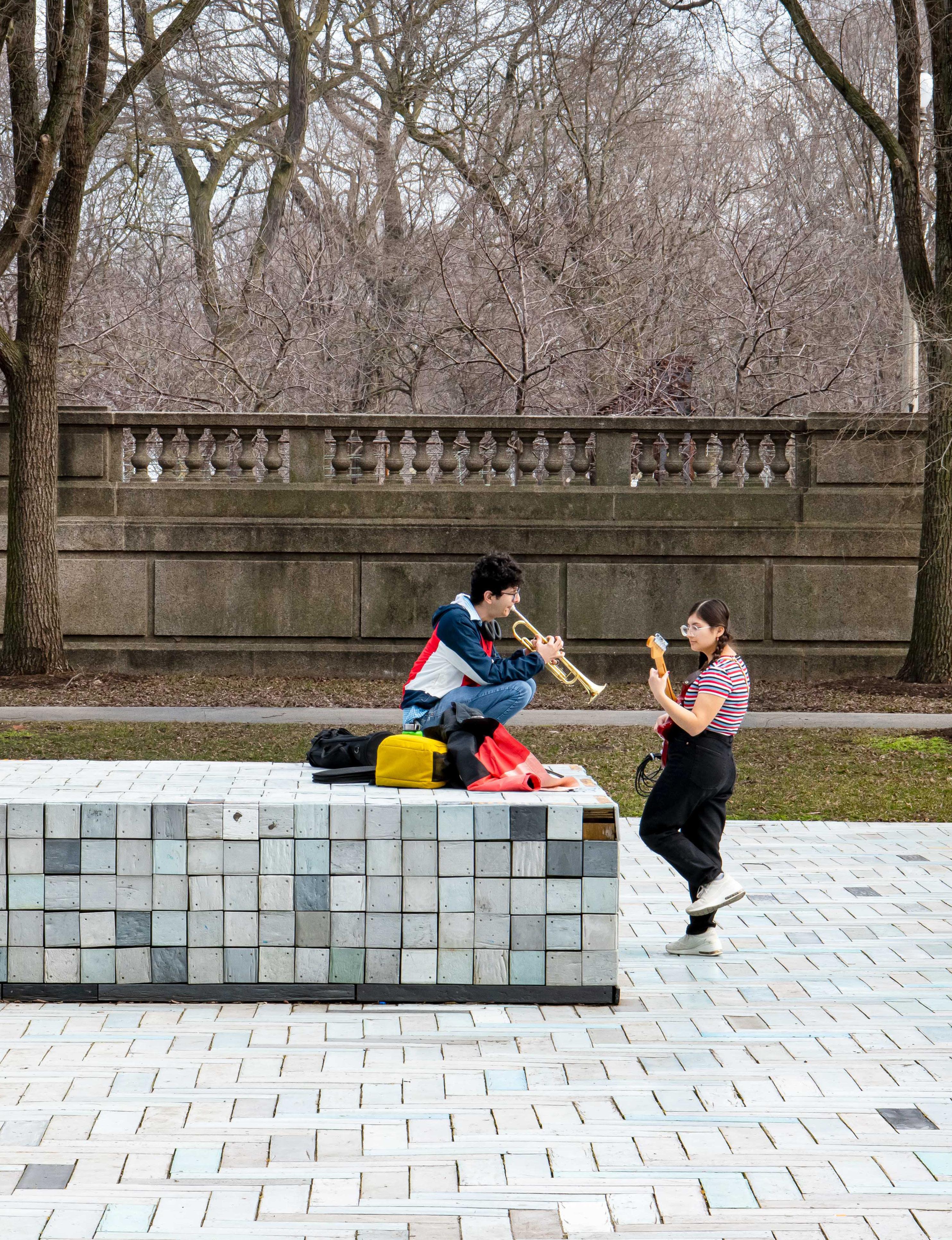

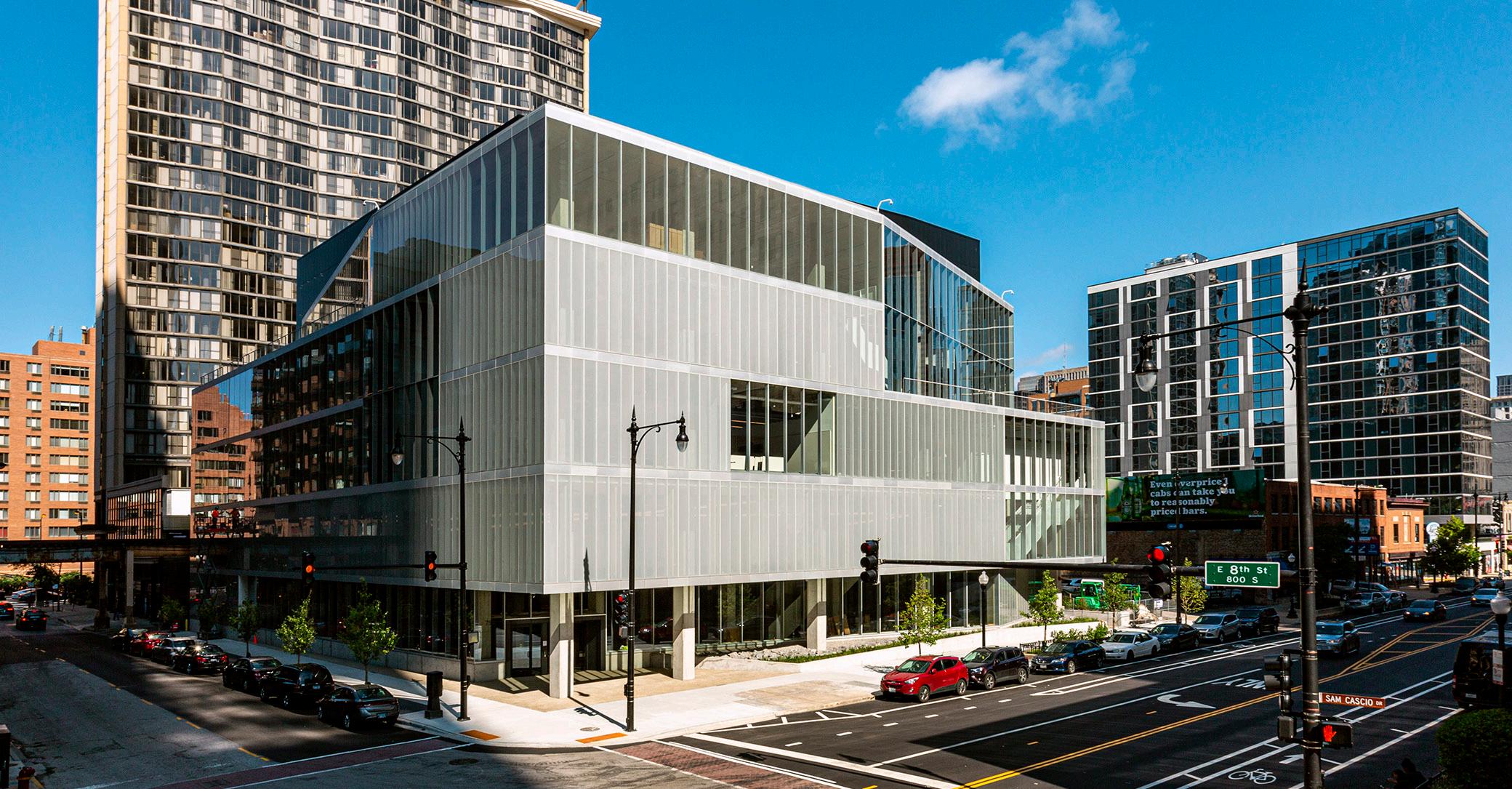

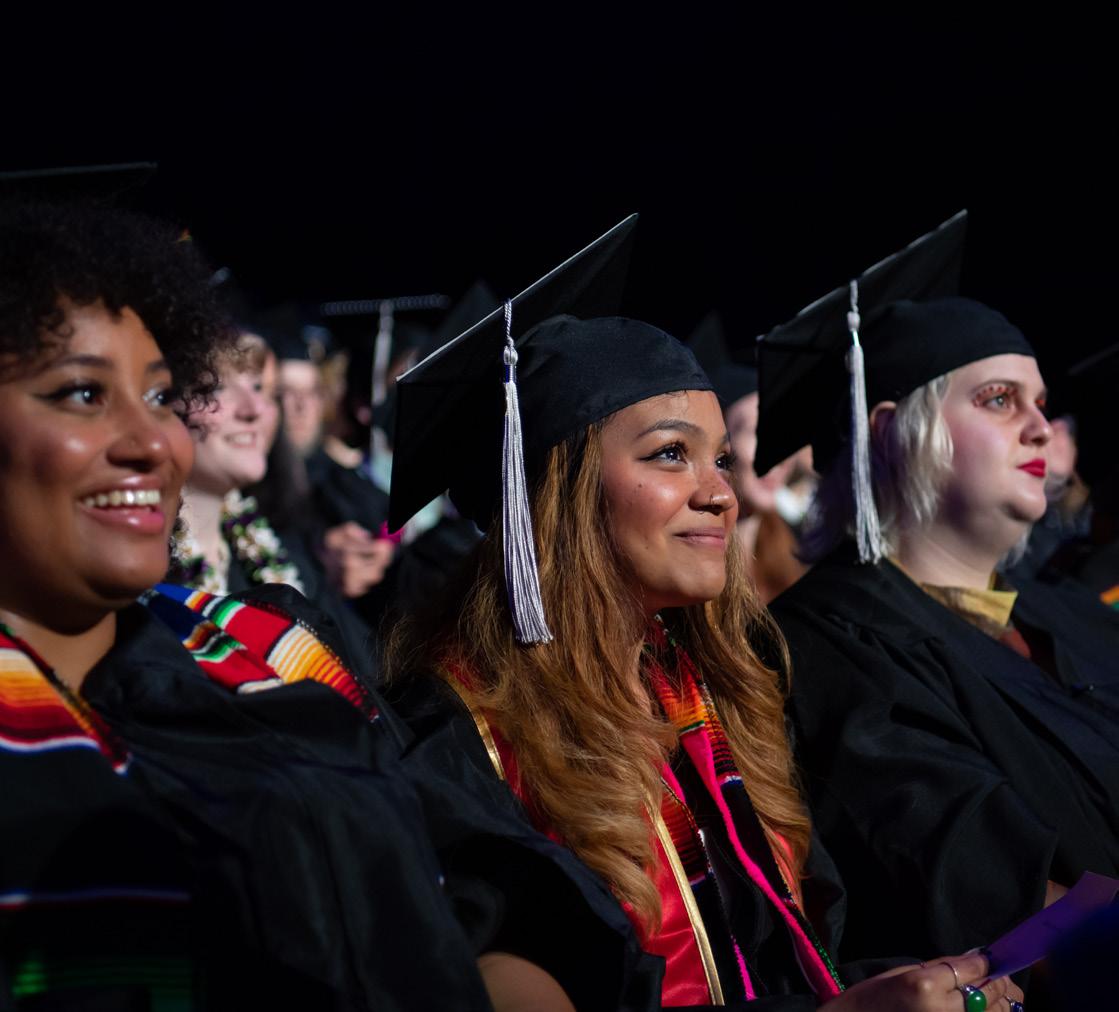
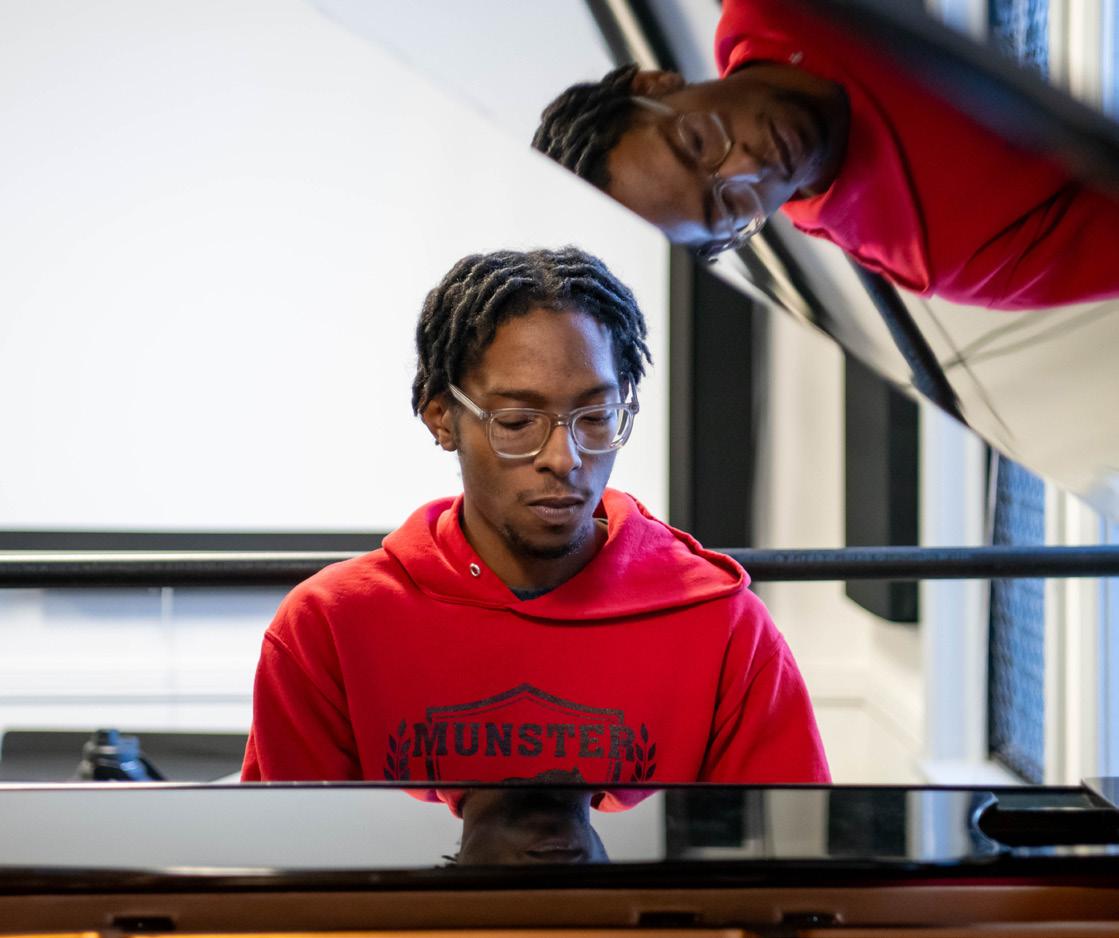

Nearly everything you’ll need to help you support your student






Your student has chosen Columbia College Chicago—now what?
It’s a good question, and we’ve provided some information in this booklet that will help answer it. There are tons of things to think about when your student is preparing to enroll at Columbia, and the process can look different for every family.
It can be difficult to keep track of everything, so this booklet is meant to broadly cover what you and your student can expect leading up to the start of classes. We hope it will be a handy reference for when you want to support your student’s next steps at Columbia, but aren’t quite sure how to do so.
We’re thrilled you and your student have chosen to be a part of Columbia. We know this is an exciting time for all of you—and we also know it can come with some challenges, so we want to make the process as easy as possible for you.
Now, let’s get to it!
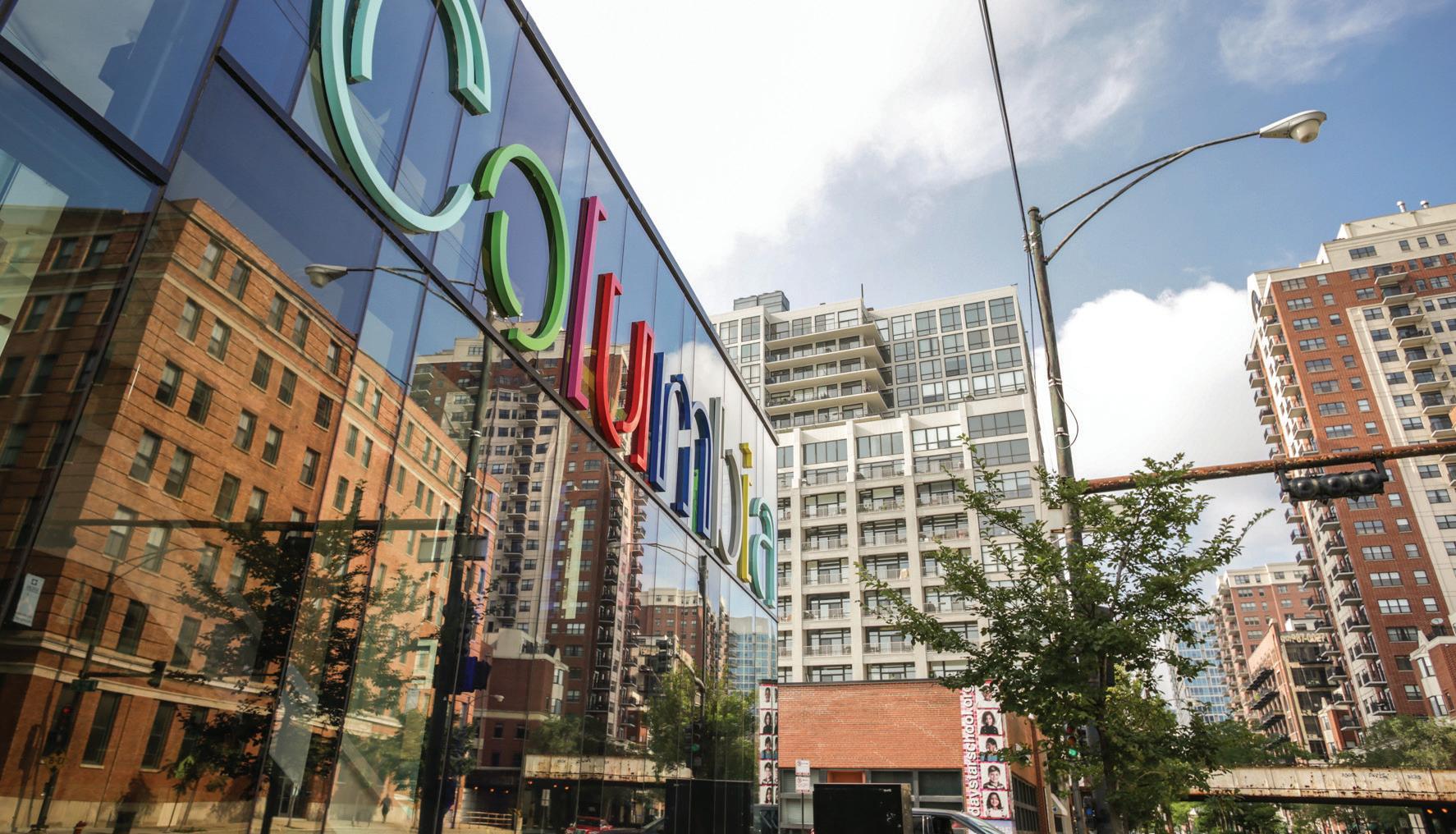


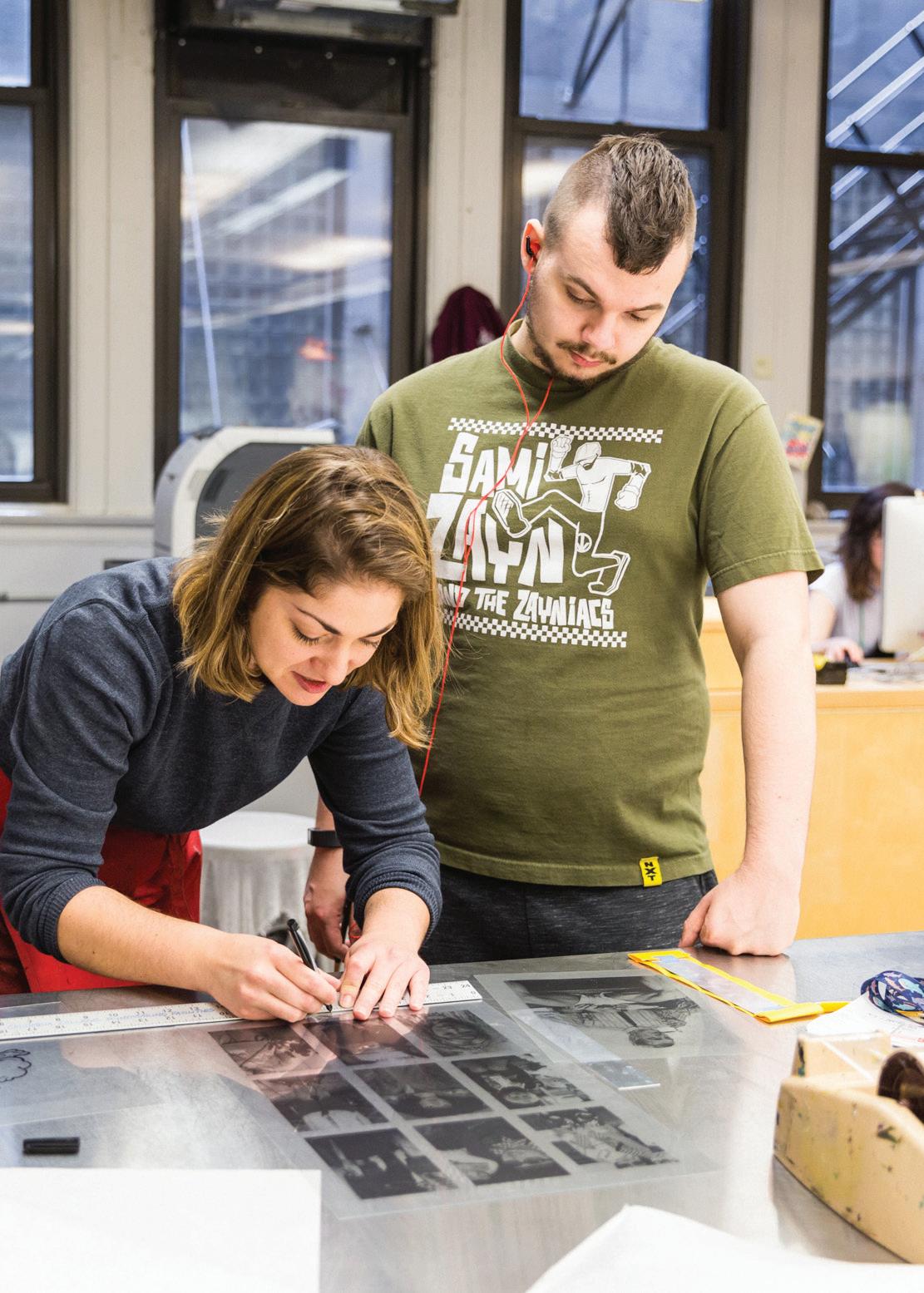
We promise to keep you informed every step of the way. This section will tell your student where and how to find everything they’ll need to know between now and the start of classes.
• How we’ll keep you informed
• Columbia email/account
• The Columbia College Chicago Family Hub INSIDE THIS SECTION
As they approach the start of classes, Columbia Connect (colum.edu/connect) is going to be your student's most upto-date resource to know what needs to be done and when, and to manage their next steps. Columbia Connect will sometimes link them to other systems they’ll use after they’re enrolled, but for now, they can think of it as the hub for everything they need to do.
One of the most important things your student will find on Columbia Connect is contact information for their Admissions Representative. This person’s job is to help them (and you, but really them) navigate this entire process. Do not ever hesitate to contact them when needed.
Whenever there’s an item requiring your student’s attention, we will:
Post it to Columbia Connect.
Send a notification to BOTH the email address they provided on their application AND their official colum.edu email address (see Office365 on pg. 7), with cc to the email addresses of any supporters they listed on their application (psst, this might be you).
If they’ve given us permission to do so, we will also send text message reminders to the phone number they provided on their application.
We’ve got great news! They already have one!
Your student should have already received an email with instructions on how to activate their official Columbia Office365 account—which includes an Outlook email inbox.
We won’t repeat those instructions here, but if they missed it for some reason, they’ll find it in their inbox under the subject line “Details Inside: Your Columbia student account is ready” or “Reminder: Activate your Columbia College Chicago student account.”
To get started, they’ll create login credentials for the account and set up Duo multi-factor authentication with their mobile device. Duo is an extra step that allows us to be sure that only your student is accessing their Columbia account.
Once they’ve accessed their account for the first time, they should find an email in Outlook with the subject line “Verify your Columbia Student Account” followed by their name. They can click on the link in that email to verify that they’ve successfully accessed their Columbia inbox.
Activating their login credentials will allow them to access Columbia’s housing application, class registration, bill payment, course management system (aka Canvas), their Columbia email inbox, additional cloud-based Microsoft and Adobe programs, and several other systems they’ll need to use as a Columbia student.
The Family Hub has become very popular among the people who support our students. It is designed to provide you with the information you need when you need it so that you can help your student succeed. If you’re interested in joining, just go to colum.campusesp.com and create an account.
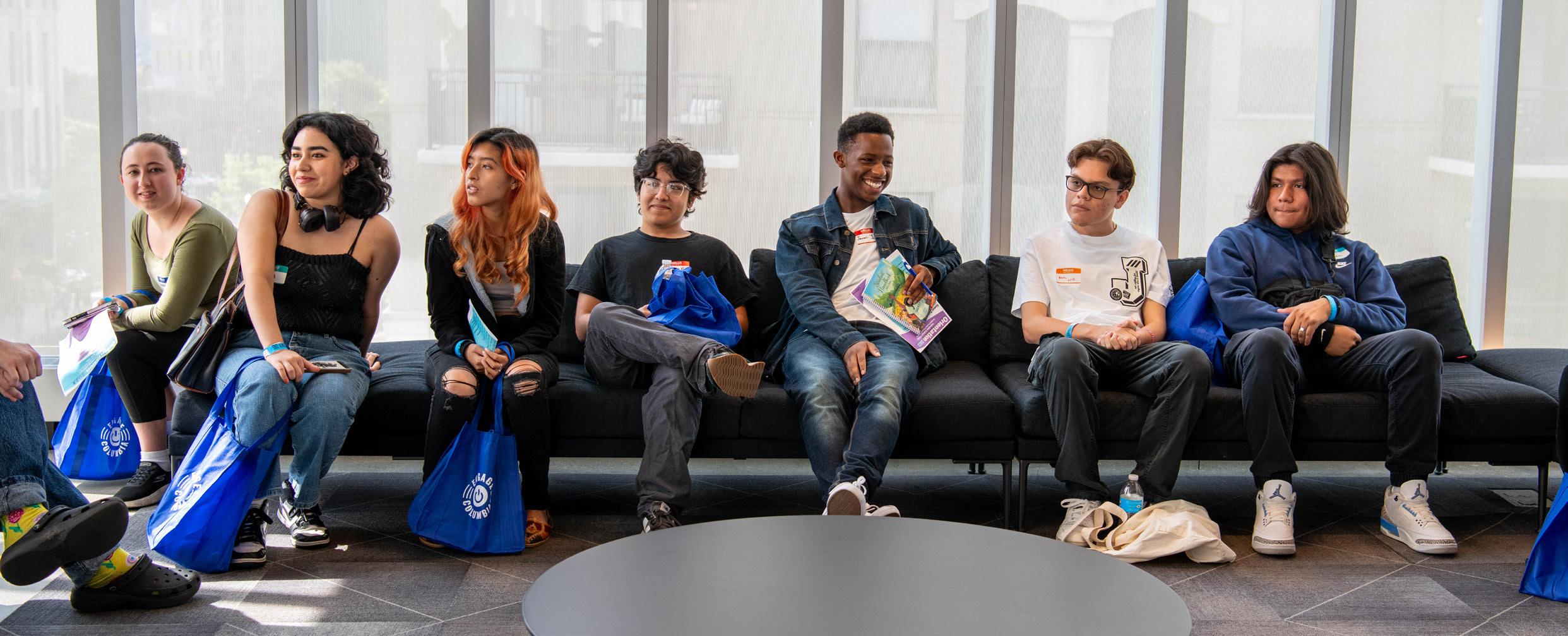
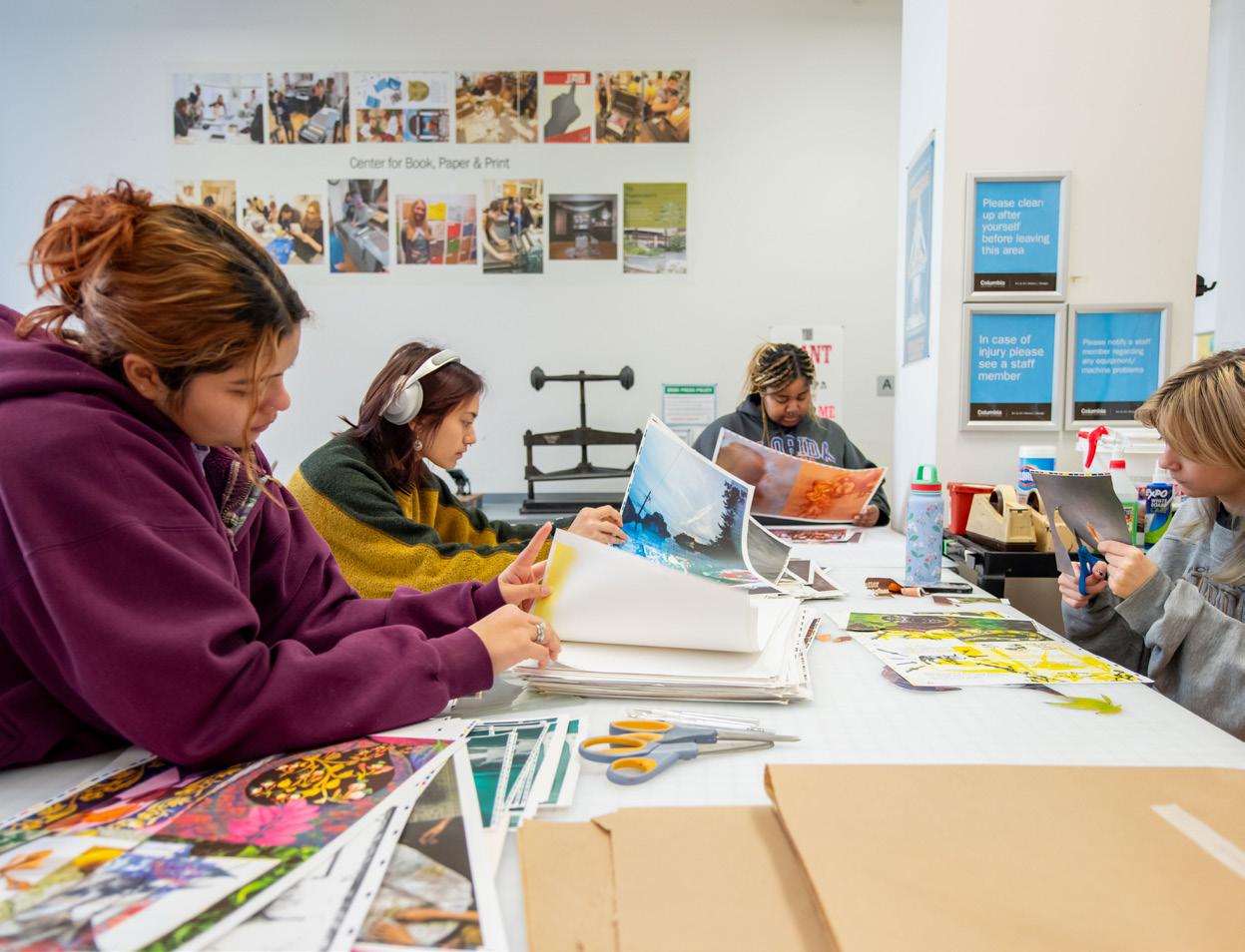
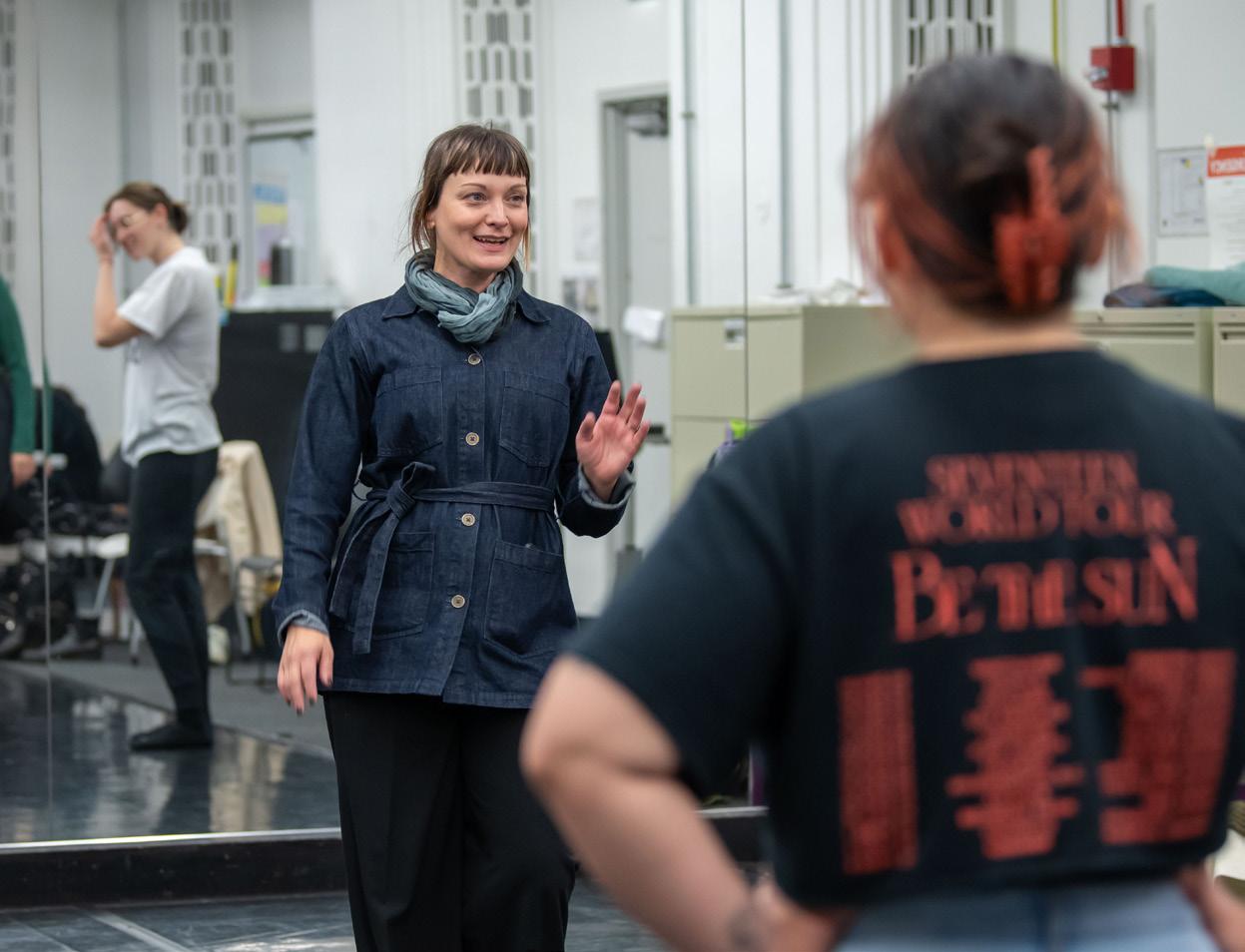
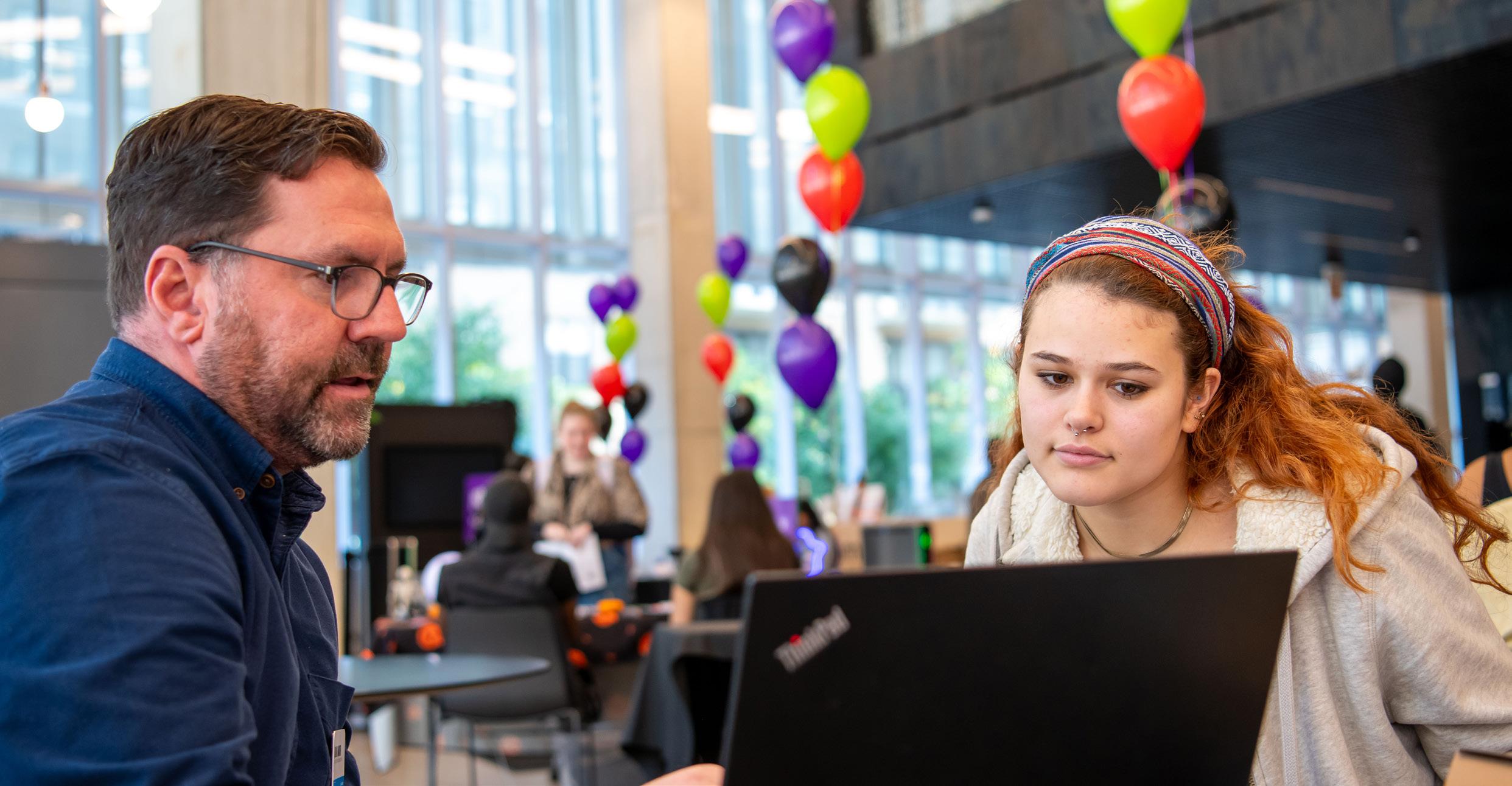
Course registration for new students happens in stages. You can support your student by reminding them that registration isn’t just selecting classes—it’s a process of making sure that they have the right classes for their college goals, and it may involve some back-and-forth with their advisor in order to get things right. It’s important to engage with the registration process in a timely fashion, but it’s also okay if it doesn’t all get done in one day.
The first step will be for your student to complete the Registration Questionnaire. They’ll access the questionnaire anytime after April 15 via a link on Columbia Connect. For students who submit their tuition deposits after April 15, the Registration Questionnaire will become available within 72 hours of submission.
The questionnaire will ask them to:
Verify their intended major (or change it with certain limitations)
Indicate interest in a minor field of study (optional)
Answer some questions specific to their intended major
Verify that they’ve completed necessary placement assessments (see pg. 12)
Unofficially report any earned or expected transfer, AP, or IB credits (we will still need official transcripts and/or score reports)
Indicate areas of interest that may guide their advisor in selecting Core classes or electives
List the days and times they’d prefer for their classes (although we can’t guarantee we’ll be able to fit their schedule entirely within these times)
Provide emergency contact information
Review and agree to the college’s policies on copyright, sexual harassment, and financial responsibility
Once they submit the questionnaire, their academic advisor will use their responses to create a draft of their firstsemester schedule.
We call this Schedule Acknowledgment, because that’s exactly what it is. On or after June 17, your student will receive a notification that their schedule is ready for review. They’ll log in, review their schedule, and check a box that lets us know they’ve seen it. To be clear: At this point, all they’re doing is acknowledging that they’ve been registered and they’ve seen their schedule. They’re not saying they approve of it as it is; they’re not committing to every class on it. We just want to know that they were able to find and read it. If they don’t like something on their schedule, they’ll have a chance to make changes.
After they acknowledge receipt of their schedule, we’ll open up a new section on Columbia Connect called MyRegistration. The MyRegistration section contains text, videos, and links to help them interpret their schedule and understand how it fits into their overall degree plan. A thorough review of MyRegistration will take about an hour, and your student will retain access to it throughout the summer in case they need to refer back to it. We recommend reviewing MyRegistration BEFORE reaching out to an advisor since it covers many of the most common questions. If your student goes into their first advisor meeting with an understanding of the MyRegistration information, they’ll be prepared to have a much more productive conversation.
About two days after they acknowledge receipt of their schedule, we’ll send your student an email introducing them to their Academic Advisor. This will be an opportunity to ask questions and talk through any changes your student might be considering, but it will also be the beginning of an important relationship. At Columbia, our Academic Advisors are assigned to specific majors, and specialize in serving those students. This is the person who will help your student navigate the curriculum, keep them on the path to graduation, and address the challenges they might encounter along the way. Your student’s Academic Advisor will be a vital part of their Columbia experience. They are laser-focused on helping your student succeed, and the foundation of that success starts with this introduction.
The schedule now belongs to your student. It’s theirs. Do they want to drop a class? They can drop it. Would they like to switch to a different section at a different time? If there’s a seat available, they can do that. We recommend they run any changes by their advisor, but the schedule is theirs to do with as they wish–and so is the bill that comes along with it, but we’ll cover that in a few pages. Just keep in mind that their advisor took their responses from the Registration Questionnaire and used them to create a schedule that builds a foundation for timely graduation. Any changes to the schedule—particularly for BFA, BMus, or BS students—could throw them off of that path.
We’ve got you covered. Just go to catalog.colum.edu and find the “Degree Planning Tools” link. When you find the name of your student’s intended degree in the list, it will link you directly to course-by-course plans for finishing the degree requirements. Please note that while these plans are meant to give your student a sense of what their path to degree completion should look like, every student’s path is different, and deviations from the plans are sometimes necessary. The plans are not meant to substitute for an ongoing relationship and communication with their Academic Advisor.
Absolutely. Our course schedule for each term is published and searchable through the “See Course Schedule” link on the “Registration and Course Schedule” page of the Columbia Central website. Go to colum.edu/registration to see more.
Columbia requires the ALEKS placement assessment for Mathematics classes. If your student has or expects to have transfer, dual enrollment, AP, IB, or CLEP credits, then they might be able to skip this assessment.
ALEKS is not a test—at least not in the usual sense. It’s a dynamic assessment that adjusts to your student’s skill level as they answer questions. And, it helps them know that the math class they’ll be taking is a good fit for them. ALEKS consists of 30 questions. Most students complete it in fewer than 90 minutes, but they’ll have three hours from when they start in case they need to take a short break. Once they’ve finished, they’ll have access to learning modules that can help them brush up for another attempt. That’s right: They can take the assessment more than once—in fact, we encourage them to do that.
There are some additional placement activities that are attached to specific majors, so students should watch Columbia Connect and their email for notifications about those. These assessments will help ensure that your student is placed in the appropriate classes right from the start. All required placement activities will be accessed via links on Columbia Connect.
If your student is having second thoughts about their major, their best opportunity to make a change will be when they complete the Registration Questionnaire (see pg. 10). But, there will be other chances after that. Students aren’t required to officially lock in their majors until they accumulate 45 total credits—usually in their third semester.
Note that this includes transfer credits, so transfer students may be on a more expedited timeline for major declaration. An undecided transfer student should be sure to talk about this with their advisor as part of the registration process.
Also remember that some degree plans are more rigid than others and a student will benefit from getting on the correct path earlier. For most of our Bachelor of Arts (BA) degrees, a third semester change still leaves enough time for the student to finish in four years. Entry to most of our Bachelor of Fine Arts (BFA), Bachelor of Science (BS), and Bachelor of Music (BMus) degrees is selective, so a student hoping to switch into one of those may need faculty approval and will benefit from making that decision as early as possible to stay on track for timely graduation.
That’s wonderful news! Our Honors Program courses offer an enhanced core curriculum experience tailored to our high-achieving undergraduate students who seek a greater academic challenge.
They’ll be in a classroom with other students who are eager for an intense intellectual experience with deeper levels of inquiry, and they’ll study with faculty who have heightened expectations of student work and engagement.
Students who meet the requirements will receive the “Honors Program Graduate” distinction on their transcripts upon graduation. These requirements can vary based on the number of credits a student has earned prior to enrollment, but students are welcome to take as many (or as few) Honors classes as they like, regardless of whether they intend to complete the full program.
Please encourage your student to talk to their Academic Advisor about how the Honors Program will fit into their overall degree plan.
That’s also wonderful news! Students who were not offered admission to the Honors Program based on their initial application can still become eligible to participate. In fact, any student with a Columbia GPA of 3.5 or higher can enroll in Honors classes (provided they’ve met any additional pre-requisites). So, your student can come to Columbia in the fall, earn a 3.5 GPA, start taking Honors classes as early as spring, and still have time to meet the requirements for the Honors Program Graduate distinction.
Freshmen students must send Columbia College Chicago a final high school transcript reflecting a graduation date. Your student should plan to ask their high school to do this once their transcript is final. Transfer students should send any transcripts reflecting work they’ve completed since their initial application to ensure they receive earned credits. Similarly, freshmen students should send any transcripts reflecting dual-enrollment work completed while in high school and/or official score reports for AP, IB, or CLEP exams.
Our new student orientation program, Engage Orientation is the first of a series of experiences designed to acclimate student to the college. It will introduce your student to everything they need to know to lay the groundwork for their success at Columbia. Encourage them to think of it as their first real college course—because it kind of is.
The Engage Orientation one-day program begins in July. There will be both in-person and virtual options. The summer program is designed to connect new students to their classmates and to gain a better understanding of the systems, services, staff, and support available to enhance their success. There will be a host of additional Engage Columbia programs and activities that will carry over into your student’s first semester after they arrive on campus. Stay tuned for more. Much more!
Details will be posted to Columbia Connect as they’re available.

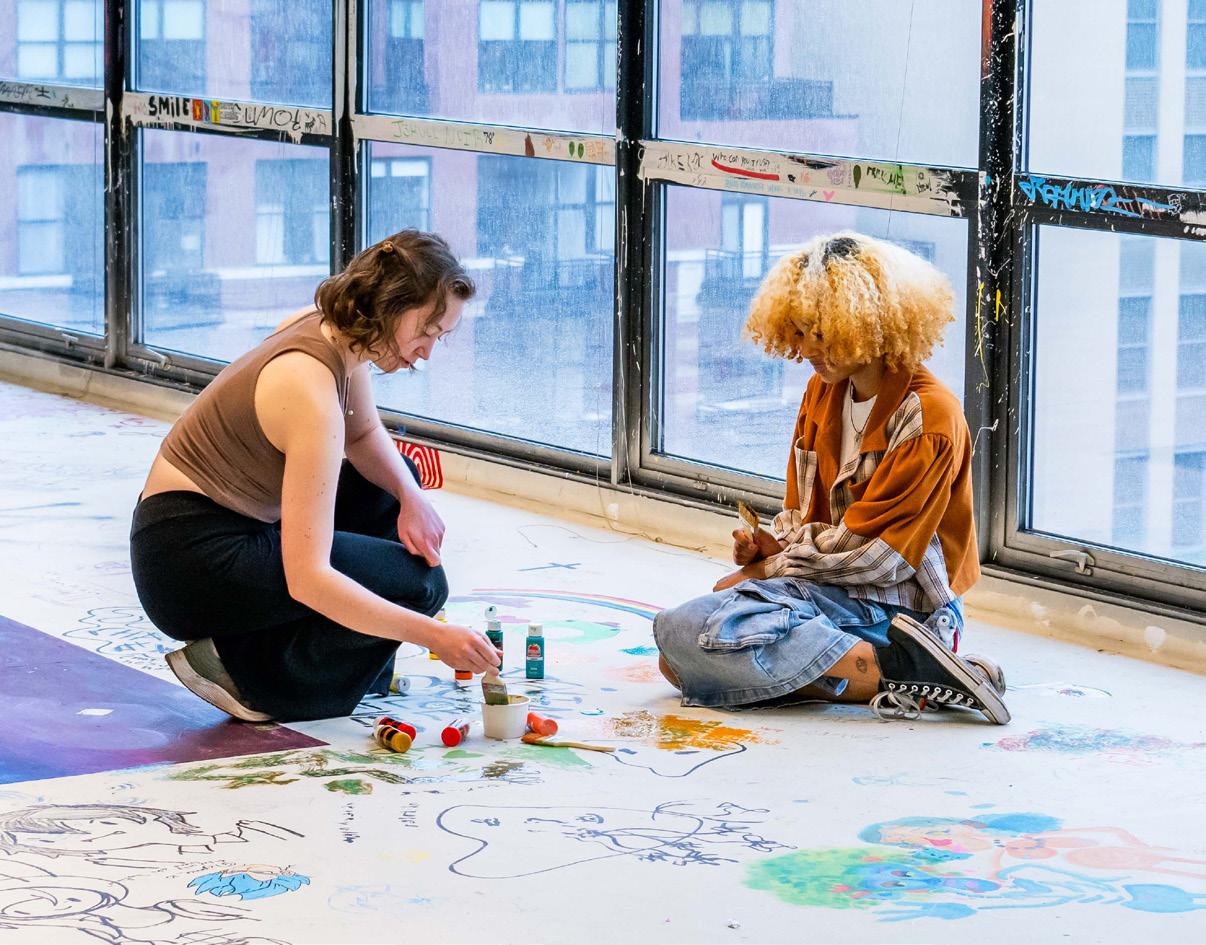
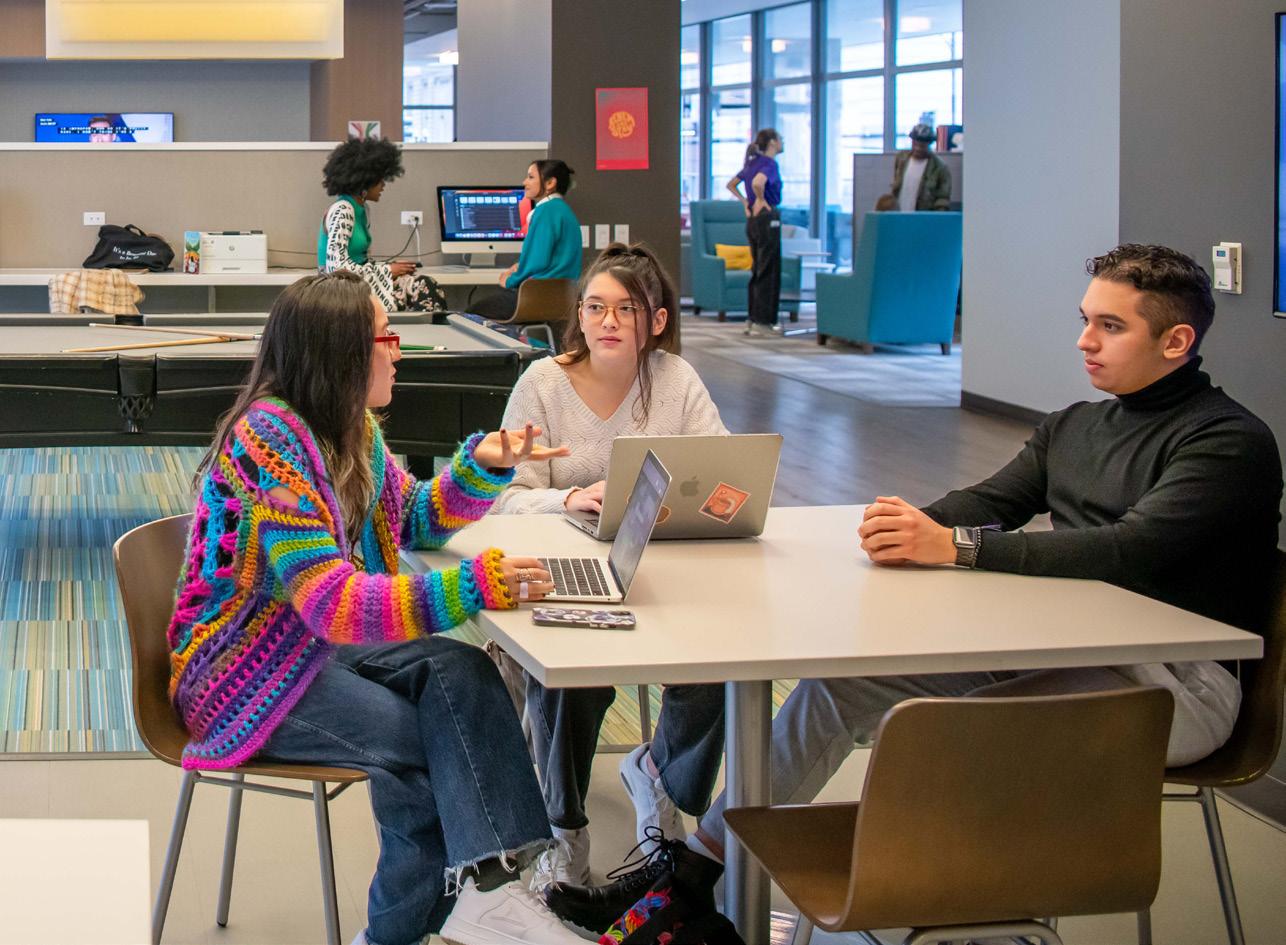
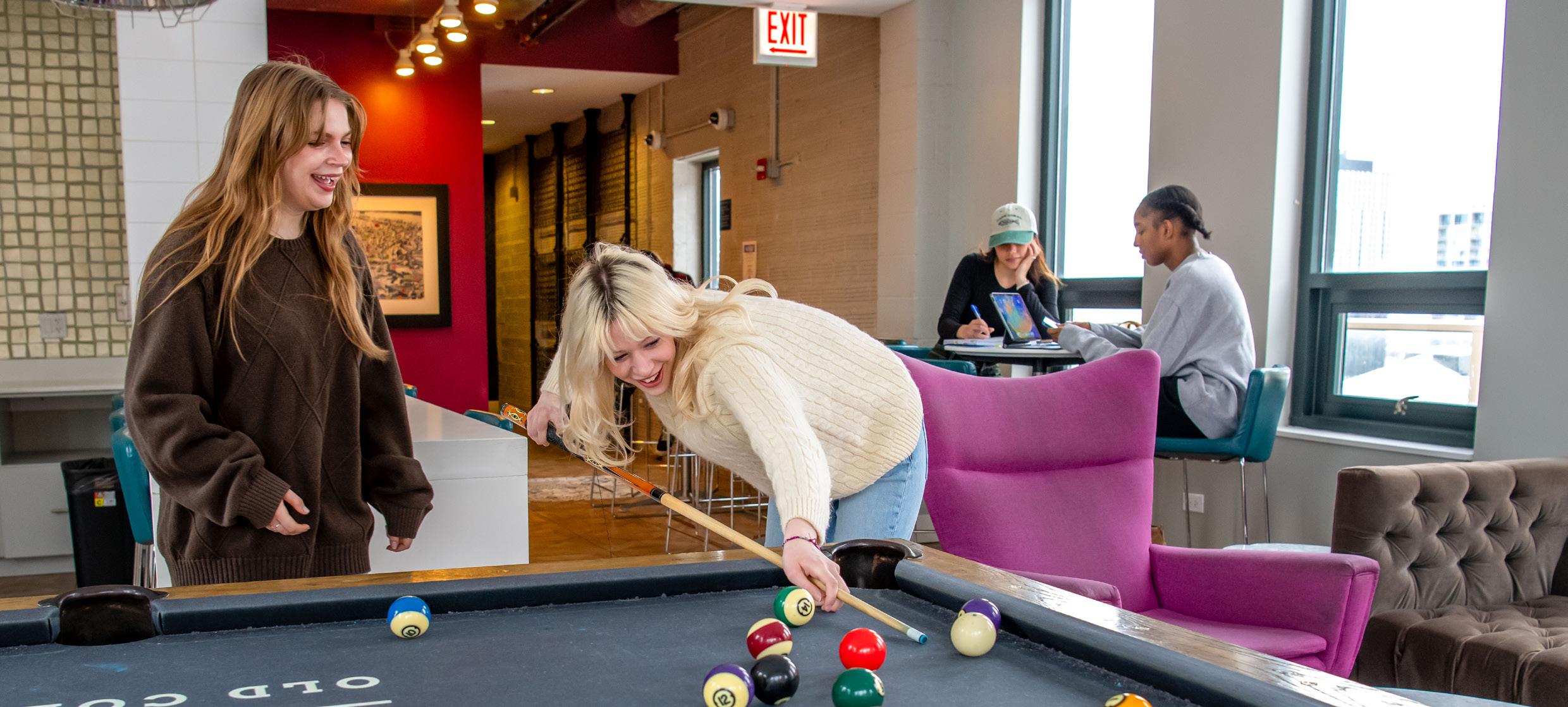
Our Residence Halls are more than just a place to sleep. They’re a hub for growing connection and community among our students—and they’re the perfect home base to have while exploring everything Chicago has to offer. INSIDE THIS SECTION
• Housing contracts
• Meal plans
• Mail and Packages
• Move-in/move-out
• Living off campus
• Transportation
Beginning April 11, 2024, incoming students can complete their Housing Application for the 2024-2025 academic year. Students will access the application using their credentials they created for their Columbia Office365 accounts. The application requires a $250 pre-payment, which will be credited to the student’s fall housing charges.
Inside the Housing Application, students will be able to indicate their living preferences, community preferences (Gender Inclusive Housing), and provide emergency contact information. The Housing Application signals to Housing and Residential Experience that your student is seeking to live on campus next year. Starting in May, students with a completed Housing Application can self-select their room on campus for next year via the Housing portal! Please understand, room, building, and roommate preferences are not guaranteed and are subject to availability.
All incoming students will participate in what we call “self-selection.” This is the process in which students with a completed Housing Applicaiton will go online to the Housing Portal and select the exact room they want to live in for the upcoming academic year. The Housing Portal will show all available rooms at the time of selection. If a specific building or room type is not shown, that means the student is either not eligible to select that space or the space is no longer available. For example, if a first-year student is attempting to select Honors housing, but they are not an Honors student, the system will not show them Honors designated rooms. Housing and Residential Experience will send a step-by-step guide in May to students on how to successfully select a room via the Housing Portal.
The Office of Housing & Residential Experience is thrilled to be expanding our First Year Experience Community (FYE). By default, all new First Year students will be enrolled in the FYE and live at the Dwight Lofts for the upcoming academic year! Students will be able to indicate if they are interested in Gender Inclusive Housing (GIH) on the application, which will be on the 15th and 16th floors of the Dwight. The Dwight has a combination of private and shared-bedroom in a shared apartment options, averaging 4-6 students per apartment.
If your student is part of the Honors program, selecting to be a part of the Honors Community or Floors will be an option. There will be Honors living options at the University Center and at 30 East Balbo. If students do not select Honors or GIH on the Housing Application, they will be enrolled in the First Year Experience.
The FYE community has an intentional focus on the first-year collegian experiences. We place an emphasis on providing programs and experiences that align with the needs of first year students; prioritizing both an acclimation to college and to Columbia College Chicago. Residents who live in this community will engage in a variety of intentional learning, social, and creative opportunities designed to enhance the Columbia student experience. FYE residents will participate in community development opportunities on campus and around the city of Chicago, gain essential leadership skills, and have unique opportunities to complement their academic experience. FYE programs include (but are not limited to), establishing healthy habits, meeting other students, exploring various study techniques, how to get involved, improve communication, and much more.
Transfer students will be able to select from properties other than The Dwight, depending on availability. See colum.edu/hre for info on each building, including floor plans.
After a student has completed their Housing Application and submitted their $250 prepayment, they will be eligible to self-select their specific housing assignment on campus for next year.
If your student has already connected with another student they wish to live with, we encourage them to apply for housing early, so they can be within the first group of students eligible to self-select a space on campus. At the time of self-selection, students should coordinate with one another the time and date of their housing selection so they can choose the same room, apartment, and building in the Housing Portal.
We know some students may have their heart set on a particular building or room type. It is always best to have a second and third preference planned out. Please ask your student to keep in mind that, when selecting their space for next year, their first choice may not be available or a space large enough to accommodate multiple intended roommates may no longer be available. We cannot guarantee room type or roommate preferences.
The majority of our residence hall rooms are double occupancy rooms. Returning students have the opportunity to select spaces before new and incoming students; therefore, many of our single rooms and studio spaces typically fill up during this time. Single rooms are very popular and are allocated on a first come, first served basis.
If your student requires a single room, or a specific room type/set up, as an accommodation for a documented disability, please mention this to our Services for Students with Disabilities (see pg. 26) office when discussing other accommodations. SSD coordinates accommodations for both on-campus housing and in classrooms. The Housing and Residential Experience Office works very closely with the SSD office during the summer to place students based on their approved accommodations. New students seeking a housing accommodation, should apply with the SSD office by May 1, 2024 to ensure timely review of their materials. Requests submitted after this date will be reviewed, however cannot be guaranteed particular space accommodations based on availability.
Once a student selects their space on campus for next year in the Housing Portal, a Housing Contract will be generated. After selecting a space, a student will have 72-hours to electronically sign their housing contract to guarantee that particular housing space for the upcoming school year. Signing the housing contract is the only way to guarantee the student will have housing for the fall.
If a student does not sign their housing contract within 72-hours, the space will be cancelled and the room will be returned to general inventory for other students to select.
In August, the Housing & Residential Experience office will begin accepting requests from students who would like to change their initial assignment. We’ll place these requests on a wait list and adjust assignments as space and availability allow. Students must have a signed housing contract on file to be considered for an assignment change.
Still, we have to emphasize that your student might not get their desired assignment, and we’d recommend preparing for the possibility.
Here’s some advice we can offer from years of observations: If you talk to a student while they’re applying for housing, they’ll often tell you that they absolutely must have a specific building or room and if they don’t get into that building or room, they might as well not go to Columbia, because living anywhere other than that specific building or room would ruin the whole experience.
If you talk to that same student a few weeks after moving into their second or third choice, you’ll find that they’ve made some new friends, they’re enjoying their studies, and they couldn’t imagine living anywhere else. It happens all the time.
For many first-year students, moving into our residence hall will be their first experience living independently in a community—it can be an adjustment.
After move-in, your student’s Resident Assistant (RA) will help them and their roommates complete a roommate agreement. This document will help residents establish ground rules for living in a shared space and will be the basis for resolving disagreements if/when any conflicts arise.
The first step to resolving conflict is to encourage your student to have a conversation with their roommate. Your student can also seek assistance from their RA. Please note that your student’s RA will first mediate this conflict to ensure that all parties’ voices are heard, and a resolution is made to move the relationship forward.
In the event that additional assistance is required, Graduate Assistants (GA) and professional staff are available to assist in mediation. There may be times when the conflict is such that it cannot be resolved through mediation and a room change may be necessary, but that is only very rarely the first course of action—we expect that residents will make an effort to resolve conflicts before a room change is considered.
There are two types of meal plans. Let’s start with the suite room types at the University Center. Most first year students will be residing at the Dwight; however, if your student is in the Honors program and selecta a private room suite, a deluxe double suite, or a semi-suite room at the University Center, the full meal plan is mandatory for the academic year contract. Suite rooms do not have kitchens, so the meal plan is required. The rates published on the college’s website for suite rooms include the cost of the meal plan, but the charge will appear separately on your student’s bill. All suite rooms are in the University Center, which is where the dining hall is also located.
For all other residential students (i.e. students not in suite rooms) there is an optional, supplementary meal plan of 150 meals for the academic year which students can purchase in the fall term. Meals in this plan are divided equally between fall and spring, with each term including 75 meals. There is also a 75-meal plan students can purchase for the spring only.
When considering whether to purchase the supplementary meal plan, keep these tips in mind: The meal plan is non-refundable, in whole or in part, for any reason—even if your student withdraws from the institution entirely.
All other room types (non-suites) have full kitchens, so students have the option of cooking for themselves—and many of our students do. There are three grocery stores (Jewel-Osco, Trader Joe’s, and Target) within a few blocks of campus, and grocery delivery is available from online services.
The dining hall serviced by the meal plan is located in the University Center at 525 S. State Street. Students living in other buildings should consider that they’ll be walking to and from the University Center for their meals.
Each student will have a designated mailbox in their residence hall for their apartment. All of our buildings have their own mail/package room with designated operating hours. These offices send their own notifications to students when a package is available for pick-up. If you’re tracking a package through a delivery service, it will register as delivered when it arrives at the building—so your student may not have received it yet.
If you are planning to send packages to arrive prior to move-in, please await further instructions from the Housing & Residential Experience office. Packages that arrive too early may not be held for you. Please also understand that the days before and during move-in are particularly busy for the respective mail rooms, and this may result in delivery delays.
Your student’s mailing address will be in one of the following formats. Just fill in their name and apartment number.
Move-in is scheduled to start the last week of August. Specific move-in dates and times will be shared this summer. Tentatively, in mid-June, 2024, students with signed contracts will be able to log into the housing portal to select a move-in date. Note that while students are able to select any available date, we recommend that new students move in no later than Thursday, August 29, as some college-wide activities for new students will begin on Friday, August 30 There will be a variety of events for new students living in the residence halls beginning Monday, August 26, 2024. These are not mandatory by any means, but rather an opportunity to start meeting other students living in the halls.
Our Housing & Residential Experience office will share a packing list of items students typically bring. Roommates often work together to determine who will purchase/bring each item.
Not at all. If they’ve signed a contract for the full academic year and are registered for a full-time schedule in the spring, they (and all their things) are welcome to stay in their assigned room. If they do go home for the break (and most students do) they can leave anything they want right where it is and it’ll be waiting for them when they come back in January.
Spring move-out will be the weekend of May 17 and 18, 2025. Your student will schedule a specific move-out time slot in advance of that weekend.
To be honest, we don’t recommend this for new students who are coming to Columbia from outside a commutable distance and who are not familiar with the city. Our residence halls’ built-in social structure and proximity to campus simply cannot be replicated in an off-campus apartment.
That said, if your student is looking to live off campus, there are several apartment-finding services that operate in the city. We recommend researching your preferred neighborhoods, keeping in mind proximity to public transportation, and beginning your search about two months before your target move-in date. You should expect your upfront expenses to be equivalent to about two-months’ rent, due upon signing the lease, half of which generally serves as a security deposit.
And, just in case your student was thinking about it: We do not recommend bringing a car whether living on campus or off. Chicago is well served by public transportation, and all full-time students are issued a Chicago Transit Authority Ventra U-Pass.
For more on apartment hunting in Chicago, see our Chicago Relocation Guide at colum.edu/offcampusliving .
It’s only one of the most exciting perks of being a Columbia student! The U-Pass is good for unlimited travel on all Chicago Transit Authority buses and trains during the activated period—which generally lasts from a few days before the start of classes until a few days after they end. See colum.edu/upass for more.
Pro tip: Once your student receives their U-Pass, they can register it at ventrachicago.com and connect it to a credit or debit card. This will allow them to seamlessly use the pass in-between semesters (when it will be charged at the regular fare rates) and will protect against the card having a negative balance in the event of an accidental “double tap” at the turnstiles.
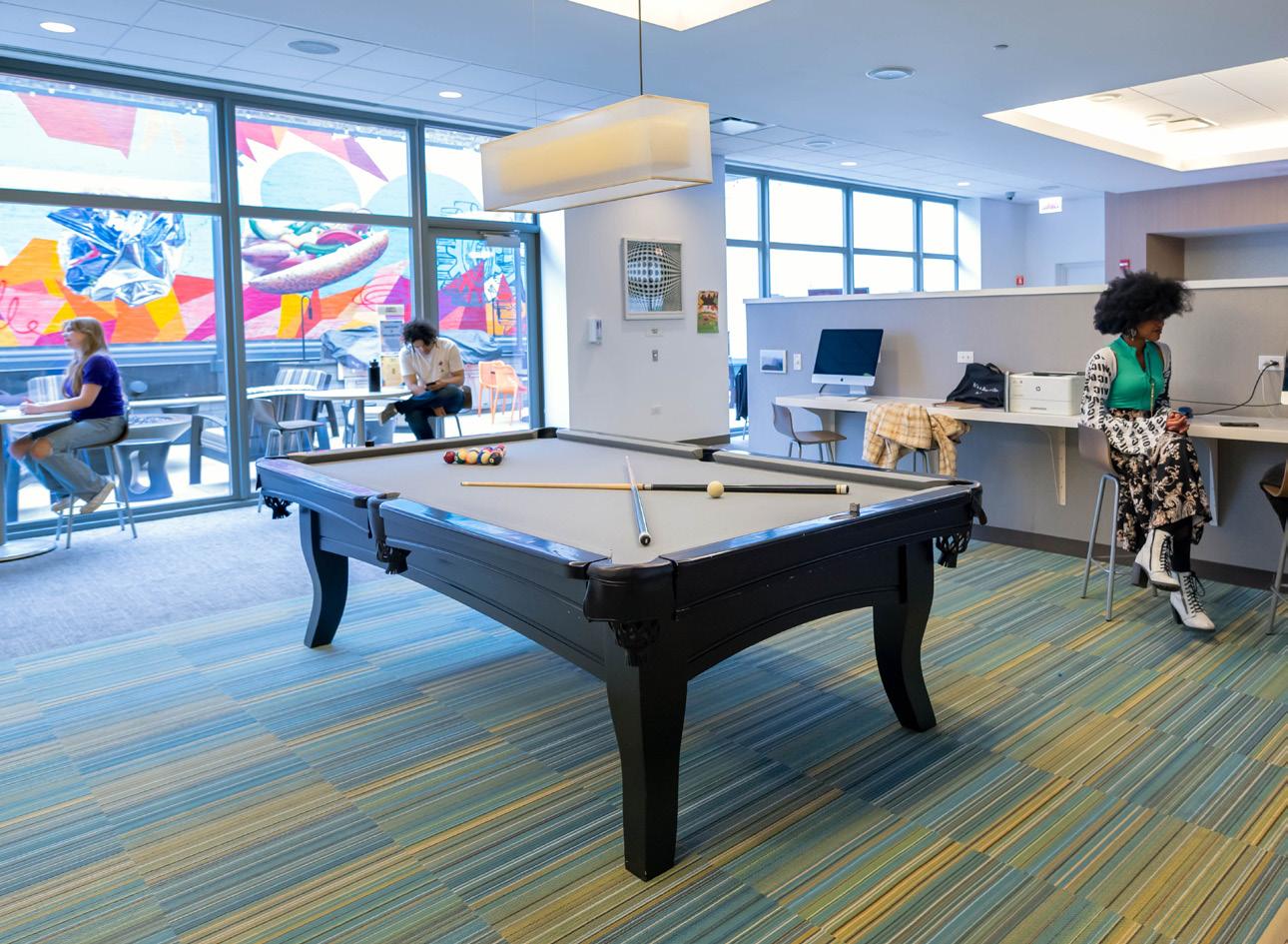

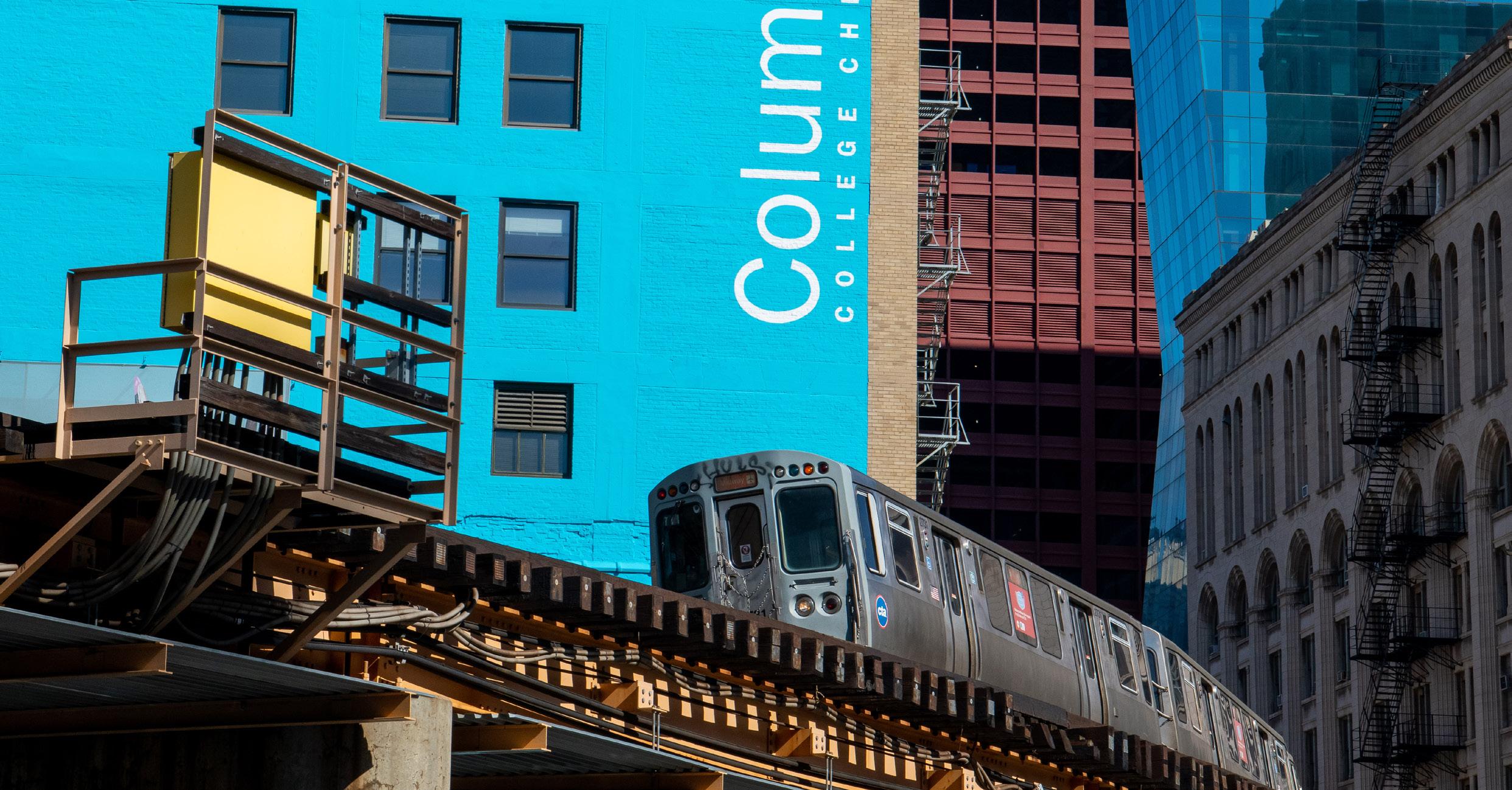
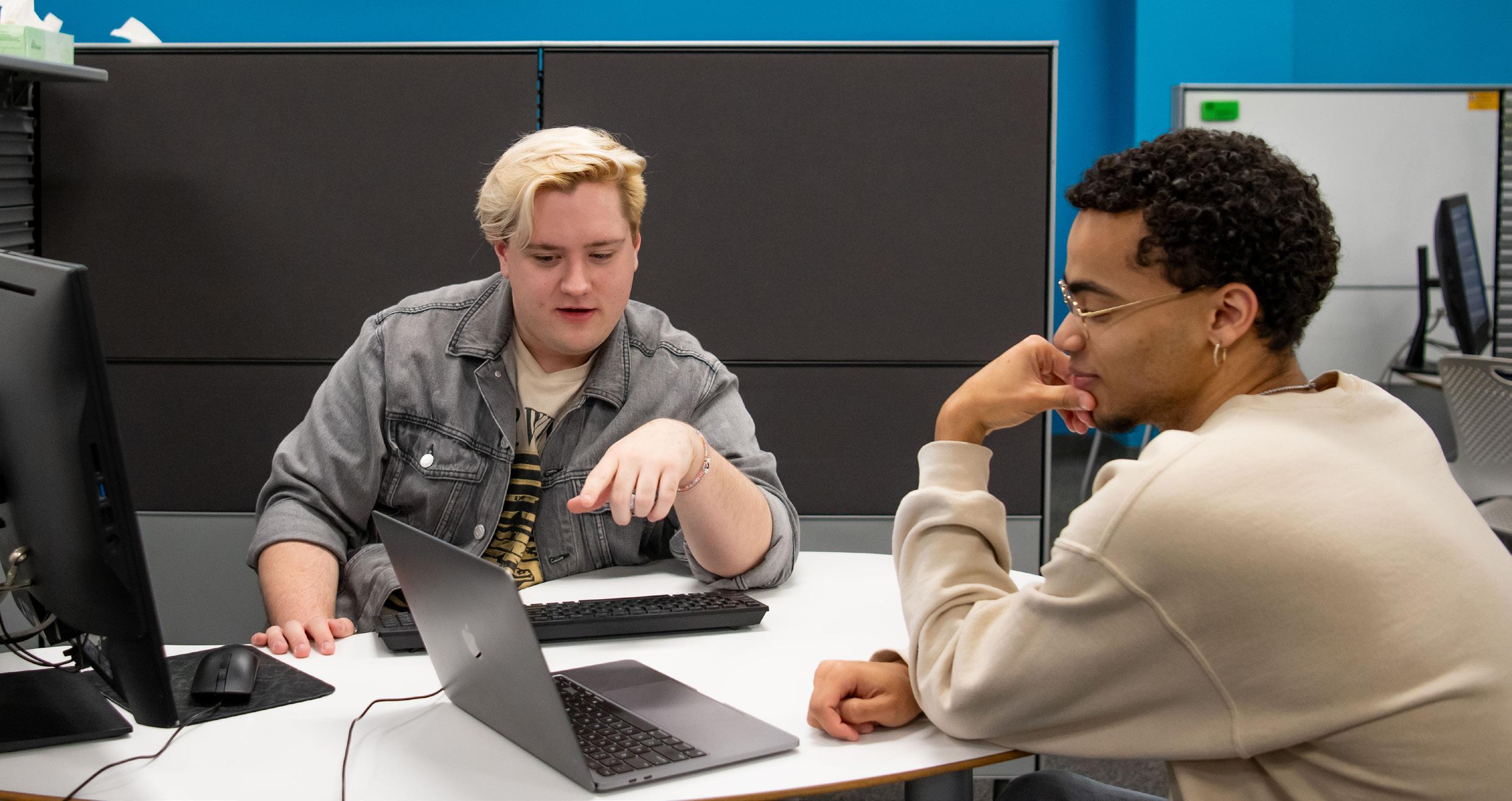
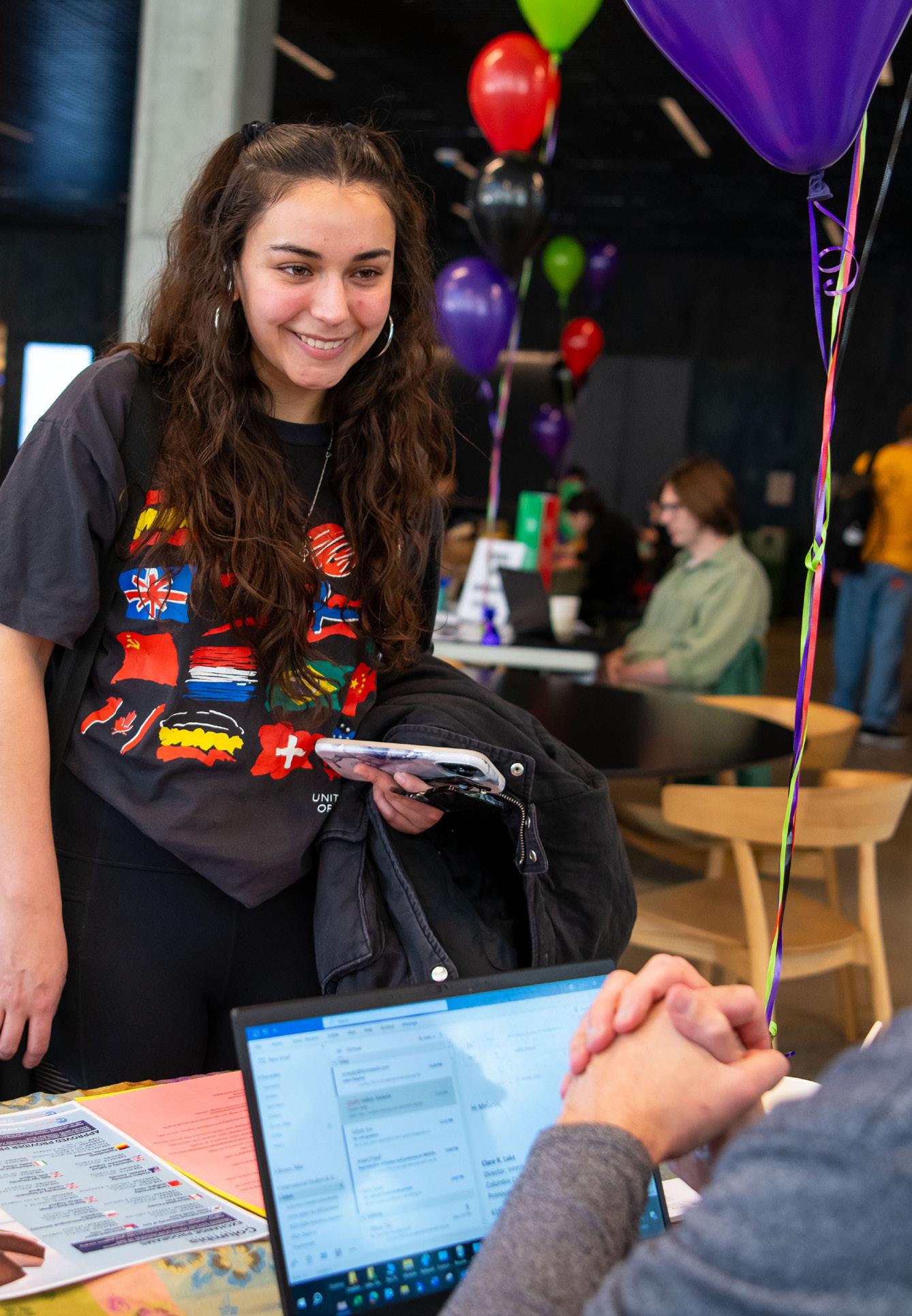


•
•
•
•
•
•
One of the most important considerations in a college education has to be how you’re going to pay for it. This section will help you interpret the scholarships, grants, and loans listed on your award letter, and understand your options to cover any remaining expenses.
We understand that every family’s financial picture is different and might require some one-on-one attention. That’s why your student’s Columbia Admissions Representative is ready to help. From Columbia Connect, you can find (right below their picture) a button that reads, “Sign up for a Virtual Appointment” that will take you directly to the representative’s schedule where you can select your date and time.
You’ll also find comprehensive information about your student’s financial aid package—and any additional documentation needed—in the “MyFinancials” tab of Columbia Connect.
First off, it’s okay. About one third of financial aid applicants are selected for verification, and it usually just means you need to provide some additional documentation to validate the information on your FAFSA. Some of the more common reasons are: Clarifying prior enrollment history; questions about your student’s dependency status; or confirming citizenship status.
The MyFinancials section of Columbia Connect will have more information and specific instructions for where to submit additional documentation.
That’s easy. At colum.edu/resourcecenter, you’ll find the “Student Aid Adjustment Request” form. Submit the form and we’ll take care of the rest.
Columbia handles billing and payments through our CCCPay system. Your student can access CCCPay through their Student Account Summary in MyColumbia at my.colum.edu. They’ll use the same login credentials they created to access their Office365 account.
You won’t see a bill in CCCPay until your student has a course schedule. From CCCPay, your student can set up a payment plan and designate an authorized party (maybe you) to access their bill and make payments on their behalf.
For fall semester, the deadline to either pay the balance in full or establish a payment plan is August 1, and the payment can be spread over five months, but if you’re ready earlier, you can work with Columbia Central to start your plan (based on an estimate of your costs) earlier. Just call 312-369-7140 or email columbiacentral@colum.edu for details.
Entrance Counseling is a mandatory session for all students taking out Federal Direct Subsidized or Unsubsidized Loans. During counseling, students will review and agree to the terms of the loan and its eventual repayment.
Your student’s financial aid award letter may include an estimated figure for a Federal Direct PLUS Loan. If you’re interested in this loan, please know that it requires a separate application that you’ll complete via the studentaid.gov website. The final approved figure could differ from the one printed on your student’s award letter. You are not required to borrow this money, it’s simply available to you if you wish to apply. If you aren’t interested in the Federal Direct PLUS loan, then there’s no need to do anything.
Columbia’s merit, need, and talent-based scholarships are by no means the only potential source to fund your student’s education. Tons of organizations offer awards to help students pay for college. We maintain a list of some of these organizations at colum.edu/externalscholarships, but our list is not exhaustive. Use it as a starting point to see what else might be out there, and start filling out those applications.
Oh, and (unlike some institutions) Columbia will never reduce your scholarship award based on external funding. If you go out and find money on your own, that money is all yours—within the terms set by whomever is giving it to you, of course.
“Work study” is a specific type of campus job. Wages for students employed through the Federal Work Study program are partially funded by the government—and if your student is eligible for federal work study, they'll receive a separate communication about it.
But, the fact is, any student can apply to work on campus. All they have to do is look through the campus job listings (see Handshake on pg. 27) and apply for anything that interests them. Once they’re on the job, they’ll get paid like any other campus employee, and they can use that money to cover their tuition or other expenses.
You can start with Columbia Central at 312-369-7140 or by contacting columbiacentral@colum.edu.
Well, we call that a refund. It will be issued to you or your student (depending on the source). Be sure to complete the direct deposit information in CCCPay to expedite processing.

Columbia requires students to provide proof of immunization against certain communicable diseases. You’ll upload your records through MedProctor.com using the same credentials you created when accessing your Office365 account. You can read the full requirements at colum.edu/immunizations
Students may request a waiver from the immunization requirement for medical or faith-based reasons. Documentation supporting a waiver request should also be submitted through MedProctor.
Thinking about purchasing a new laptop for college? A new camera for your Photography major? Digital Studio software for your Music major?
Review the specific requirements for each major at colum.edu/techneeds. You may even be able to incorporate the cost of any required equipment into your financial aid package.
Oh, and all Columbia students can share in the college’s license for the full Microsoft Office and Adobe Creative suites. See colum.edu/adobe for complete details.
Columbia determines reasonable accommodations based on your student’s needs and to provide equal access to their education. Your student can start working with our Services for Students with Disabilities office before they’re enrolled to make sure everything is in place. You’ll find more at colum.edu/ssd
Handshake (colum.edu/handshake) is the place to look for all sorts of employment opportunities, both on and off campus. Your student will receive an email notification with instructions on how to access Handshake about two weeks after they complete the registration process. All on-campus jobs are open to all students—including our international students.
To start the student visa process, your student should complete the I-20 request form on Columbia Connect. We require a copy of their passport and proof of finances to cover one academic year (if the account is not in the student’s name, a proof of sponsorship form is also required).
For the 2024-2025 academic year, this amount is $56,281 USD.
We understand that this may be an intimidating amount. However, families may submit as many sponsorship forms as needed. Once we have processed the I-20, your student is free to book a visa appointment at their closest United States Embassy. This is a time-sensitive process as there may be a high volume of visa applications, causing a delay. Our team of International Admissions Officers are here to walk you through each enrollment step. For any questions contact intladmissions@colum.edu
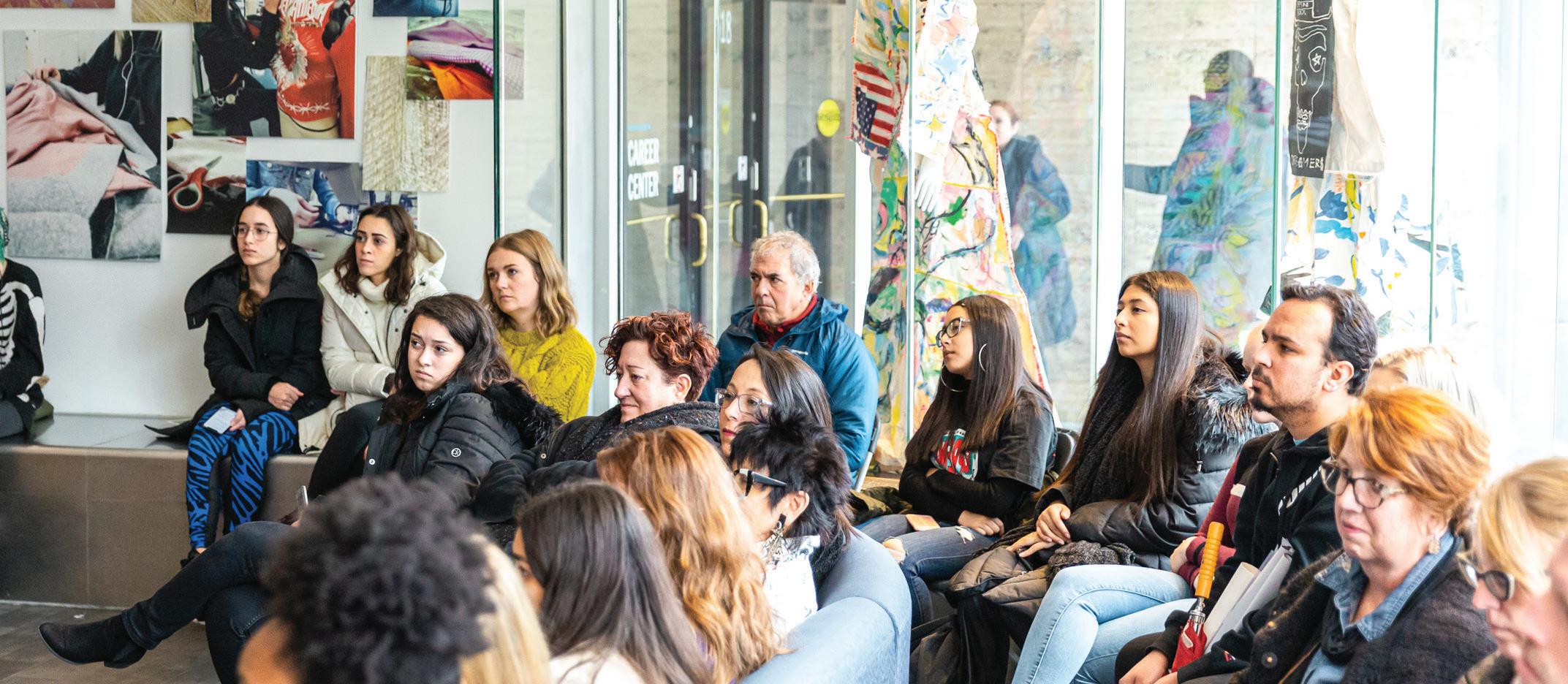
The Fall term starts on Tuesday, September 3, 2024. We’ll see your student there!
Columbia’s course management system is called Canvas, and your student can access it at canvas.colum.edu using the same credentials they created when activating their Office365 account. On their Canvas dashboard, your student should find thumbnail icons for each of their courses in a given term. Instructors are responsible for updating Canvas pages for their courses, and some may not do so until a few days before classes start. If your student can’t find information they need about a particular course, they should feel free to email the instructor.
Columbia does not have a formal schedule for midterm or final exams. Schedules and dates for all exams and projects should be clearly stated in the syllabus for each course. Please encourage your student to read these documents carefully so that they know what is expected of them in class.
The Student Health Center (colum.edu/health) is available to all students for non-emergency treatment. The Center is staffed by a physician or nurse practitioner during operating hours and can refer students in need of more serious treatment to other resources in the city. Counseling Services (colum.edu/counseling) are also available to students in individual, telehealth, and group settings. Costs for both of these services are covered by the $755 fee billed alongside tuition each semester.
We want you and your student to know that help is available. Your student’s Academic Advisor (see “Academics” section on pg. 11) will be your student’s primary point of contact for anything related to their coursework. For help with specific classes, your student may reach out to our Academic Center for Tutoring (colum.edu/tutoring). Also, our Student Persistence Office (colum.edu/persist) works specifically with students who’ve been identified as at risk of failing a class to provide the support they need to get back on track.
The Fall 2024 semester ends on Saturday, December 14, 2024.
Classes resume for our J-Session on Tuesday, January 6, 2025, but this date will not apply to most students. J-Session is an interim session between fall and spring; students are not required to enroll in J-Session and many J-Session courses are offered at off-campus locations (study abroad, for instance), but if your student is enrolled in J-Session, they may need to be back on campus by early January.
Classes resume for the regular Spring 2025 semester on Monday, January 27, 2025. This is the date by which most students should plan to have returned to campus.
The acronym FERPA stands for the Family Educational Rights and Privacy Act, and it allows students to have some control over access to their academic and financial records at Columbia. If your student is interested in learning about their rights under FERPA, they can find more at colum.edu/ferpa.
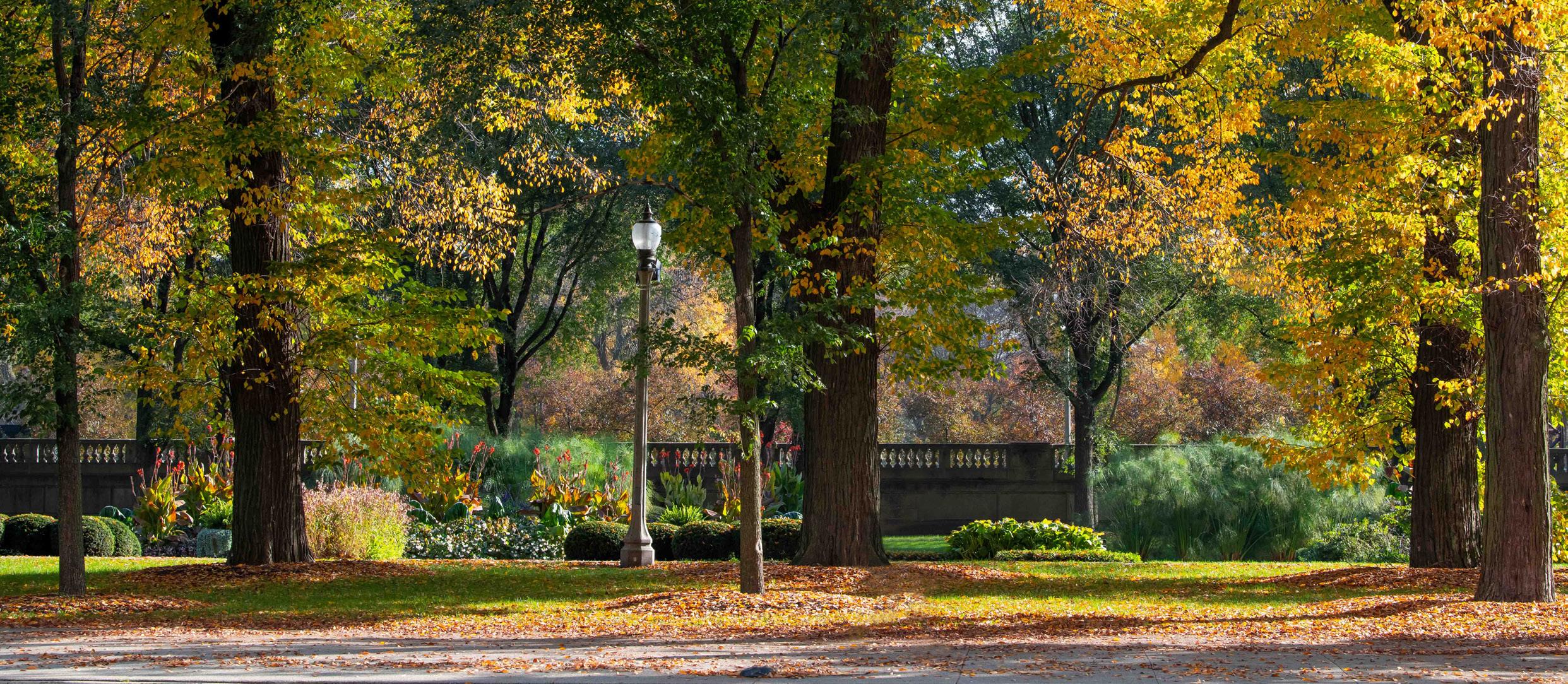
It is perfectly natural to be concerned about your student’s well-being no matter where they may be going to college. But let’s start by acknowledging that safety isn’t necessarily a condition of being completely free from potential harm—safety is a feeling. It’s possible to feel safe even if you aren’t; it’s possible to feel endangered when, in fact, no threat is present.
The factors contributing to an individual student’s sense of safety can vary greatly. Something like the presence of law enforcement, for instance, might be a comfort to one person, while representing a potential threat to another.
College students are adults, and at Columbia (and other colleges), they are free to move about the campus and beyond it as they see fit—in fact, we encourage them to do so. There are amazing things to see, do, and experience in the city of Chicago, and a student who never left our campus would deprive themselves of an important part of their Columbia education.
On any campus, developing familiarity with your surroundings and maintaining situational awareness can go a long way toward cultivating that sense of felt (and real) safety.
To preserve this sense of safety—and to respond in the event of any actual threat— Columbia maintains the following practices and resources:
24/7 security presence in our residence halls. Only residents and a limited number of guests, who have to be signed in by residents, are permitted.
Security staff are posted in all of our academic buildings when they’re open. Most buildings are open from 7 a.m. to 11 p.m. Monday through Saturday. Access requires ID scans for students, faculty, and staff. Campus visitors must check in with the security desk.
Security staff patrol the campus on foot, Segway, bicycle, and automobile.
Our Safe Ride program is available seven days a week from 6 p.m. to 1 a.m. during fall and spring semesters. Rides are offered from academic buildings to residence halls and to nearby Chicago Transit Authority and Metra stations.
“Blue Light” phones positioned around campus connect directly to the Campus Security command center.
Columbia’s Title IX Office is available to students who specifically wish to report sexual assault and harassment. The office has established an investigation and hearing process for these reports.
Our Student Affairs office offers safety and security classes to all students.
Our campus security office maintains a close relationship with their counterparts at neighboring universities and the City of Chicago, specifically the 1st District Police Department and the Chicago Office of Emergency Management.
When incidents do occur on or near campus, the Campus Security Office issues alerts with guidance on what (if any) action might be advised.
If you’d like to review our data, you can download Columbia’s annual report on campus crime. It’s called a Clery Report, and you’ll find it by searching “Clery Report” from the colum.edu home page. Every college campus in the U.S. is required to publish their Clery Report annually, and we encourage you to compare ours to other schools.
We’d also like to acknowledge that some of the apprehensions people have about safety at Columbia is specific to our location in downtown Chicago. This is a point of view that we occasionally encounter at Columbia—often from families who are unfamiliar with the city or whose perceptions have been largely shaped by media coverage.
Our campus is in the South Loop neighborhood, which sits between the city’s central business district and the Museum Campus. It is a neighborhood that around 25,000 residents call home and that attracts thousands of students, professionals, and tourists every day.
But it is not sufficient for us to simply tell you that our neighborhood is safe. By mission, Columbia exists to serve the entire city of Chicago, and we’re proud to call ourselves part of it. Many of our students, faculty, and staff, make their homes in other neighborhoods of the city—among them, neighborhoods that many people may not regard as “safe.”
We want our students to actively interrogate why that is.
We want them to understand that the safety of any neighborhood is shaped by factors that have been at play for decades, including historical and systemic structures of discrimination and segregation, redlining, economic disinvestment, and law enforcement practices that are rooted in racism and hate.
We can’t move forward together without people and institutions willing to both reflect on how we got here, and work to correct those wrongs. And at Columbia, our commitment to being an anti-racist institution includes examining our own perceptions of what safety really means and how we can achieve it for everyone in our community.
It’s a lot to take in, we know, but we also know that you’re ready for this. You’ve helped your student get this far, and you’ve got what it takes to get them the rest of the way—and when you need it, we’re here to help.
For reference, here are a few of the Columbia offices your student will most likely need as they approach enrollment. Each office is staffed by people whose shared dedication to the Columbia student experience is part of what makes this a special place to learn and grow. And we think that when your student joins us here, you’ll agree.
Admissions
(applicants and admitted students)
312-369-7130 admissions@colum.edu
Academic Advising
312-369-7645 collegeadvising@colum.edu
Columbia Central (financial aid and registrar services)
312-369-7140 columbiacentral@colum.edu
Services for Students with Disabilities
312-369-8296 ssd@colum.edu
Housing & Residential Experience (on-campus housing)
312-369-7803 housing@colum.edu
